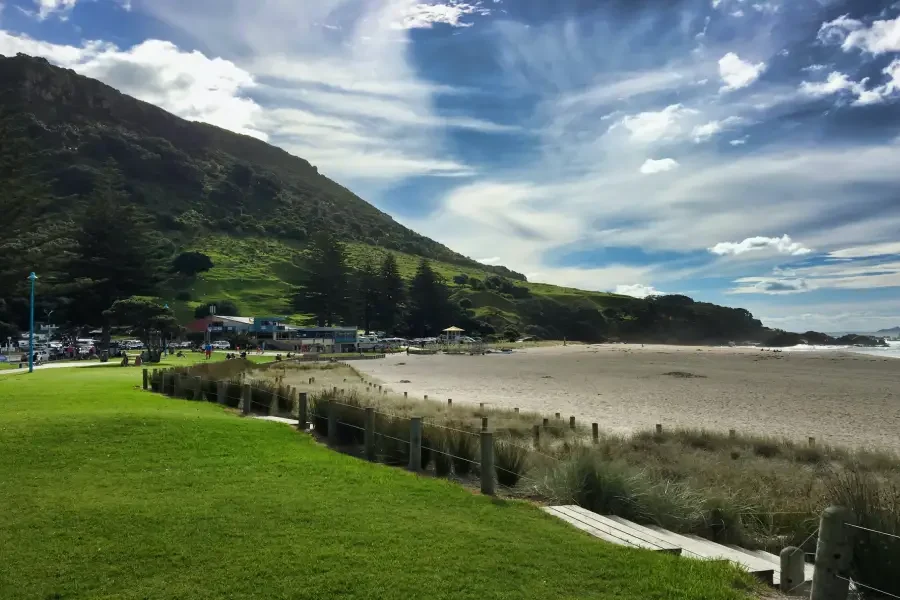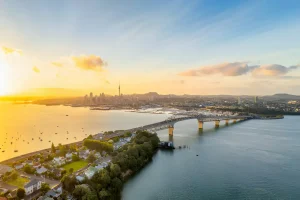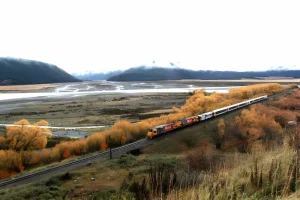
Best season to visit New Zealand – (December to February)
New Zealand is a year-round destination due to its magnificent beauty, diverse regions, and rich culture. Every season has its unique appeal and experience, making it a perfect destination for travelers of all ages. New Zealand has something for everyone, whether it’s the green of spring, the brightness of summer, the vibrant colors of autumn foliage or the winter snow. Knowing what to expect from each season is essential for determining when to visit and how to maximize the country’s natural beauty and cultural richness.
Best season to visit New Zealand to obtain a Visitor Visa
The best season to travel to New Zealand is between early November and the end of April. This time of year, the weather is significantly warmer.
New Zealand’s peak travel season runs from December to February, along with the warmer months. This is a good time for warm weather because many of the tourists are on vacation and the holiday season is distinguished by festivals. As a result, it is critical to be well-prepared for travel during this time. Our team is ready to help you with a New Zealand visitor visa.
Regarding weather and motorhome rental availability, the off-season (autumn and spring) is the greatest time to explore New Zealand. Vehicle prices are modest, and the weather is pleasant, particularly in March and April.
Winter in New Zealand lasts from May to September, and motorhome costs are incomparable at this time of year. There are a lot less people on the roads and at the campgrounds.
You have greater freedom. Fortunately, our partners supply campers with two independent heaters, allowing you to sleep comfortably at night. It may get a little cool outside the camper, especially in the south.
How do I choose between islands to visit in New Zealand?
New Zealand is made up of two distinct islands, each with a unique identity of its own. The northern island is known for its lush rainforests, beautiful beaches, and geothermal energy, and the southern island is known for its breathtaking lakes, mountains, and glaciers.
The North Island of New Zealand is famous for its warm climate, volcanic and geothermal activity, and gorgeous beaches of white and black sand, turquoise ocean, and lakes. It is the most inhabited island in the South Island due to its large Maori population. The North Island, despite its small size, is known for its undulating hills and diverse terrain.
On the other hand, the South Island is much bigger and more rugged than the North, and its landscape is rich in contrasts and beauty. Each part of the island has its unique character, from the pristine beaches of the north to the tropical rainforests and glaciers of the western coast, to the fjords of the south, the vast plains of the east coast, and the majestic mountains of the center. Although the South Island is not as popular as the North, it provides an isolated and peaceful sanctuary.
What is the recommended trip duration for staying in New Zealand visa for tourists?
It is critical to provide enough time to appreciate each of the islands. If you just have a week to spend on the trip, it is best to focus on one of the islands. Because New Zealand has so many attractions, it is unlikely that anyone will be able to see them all. In general, it is best to prioritize one of the islands and return to the other later. One will be keen to return to New Zealand after spending time there.
Over two weeks, travelers have the option of either visiting both islands in a relatively regular manner or moving around almost daily to gain a comprehensive overview of each. Alternatively, they may choose to visit only one island and take advantage of the various rest days available, allowing them to take advantage of the many activities available without having to drive daily. Our team is available to provide advice on what to do, based on their own experiences in the country.
You’ll have plenty of time to tour each island if you have three weeks or more. You will be able to completely lose yourself in New Zealand culture, visit each location at your leisure, meet people, and explore the country quietly. Furthermore, you will also be able to discover many of New Zealand’s hidden beauties before touring New Zealand, citizens from different countries must pre-register for an NZeTA Online Application.
Is New Zealand a good place to go to?

New Zealand is known for its diversified terrain, which provides visitors with a variety of activities. Visitors can explore the nation in all its splendor by water, land, or air. This country is a playground for both adults and children, with a wide range of activities for people of all ages. Hikers can choose from a range of walks ranging in length from a few minutes to several days. Maori culture is prominent, providing a wealth of knowledge on the indigenous people’s history and traditions. Furthermore, New Zealand has a diverse range of flora and wildlife, many of which are unique to the country. You will not be disappointed if you plan ahead of time and get a New Zealand tourist visa.
Is New Zealand better in spring or fall?
In New Zealand, spring and fall are two separate seasons, each with its special beauty. Spring is full of flowers, wildlife, and mild weather, making it the ideal time to get outside and appreciate nature’s splendor. On the other hand, fall has gorgeous colors, fewer tourists, and lower temps. It’s the ideal time for a scenic drive or a wine tour, with pleasant weather in both seasons. Both spring and fall are excellent periods to visit New Zealand, but the choice is between seeing nature in its original state and enjoying the fall foliage.
Is New Zealand expensive to visit?
Traveling to New Zealand can be expensive, especially when it comes to accommodation, transport, and some activities. The cost of lodging, particularly in major tourist areas, can be prohibitively expensive, especially during peak travel seasons. Dining out, adventure activities, and tours can all increase the expense of your trip. However, you can cut costs by planning ahead of time, selecting low-cost hotels, visiting free or low-cost attractions, and taking local transportation. New Zealand may be pricey in some locations, but with careful planning and budgeting, you can enjoy this incredible nation.
How many days in New Zealand is enough?
If we talk about it, many visitors choose to spend at least 2–3 weeks in the country to thoroughly immerse themselves in its rich culture, landscapes, attractions, and activities. The ideal days to spend in New Zealand are determined by your particular interests and the activities you wish to undertake. This particularly allows you to visit both the northern and southern islands, with plenty of time for scenic drives, outdoor activities, national park visits, cultural experiences, and leisurely town and city breaks. On the other hand, if you want a short vacation that takes around 7–10 days can be an excellent way to discover New Zealand to cover the entire country. If you have any questions regarding the process or application of visas, please do not hesitate to contact us.
Why is New Zealand famous for tourism?

From its gorgeous ports and clean beaches to its lush forests and snow-capped mountains, New Zealand is a country full of beauty and adventure. There’s something for everyone, from bungee jumping to climbing the Milford Track and seeing Rotorua’s geothermal wonders. It’s also a terrific area to come to if you want to get away from the hustle and bustle of the city.
Is New Zealand food expensive?
The price of food in New Zealand varies according to where you travel and what you eat. Eating out at a restaurant or café in tourist destinations or big cities may be costly, especially if you want high-end or special cuisine. On the other hand, visiting local markets, casual eateries, and supermarkets can be less expensive. Cooking meals on the fly or getting takeaway might also help you save money on food. While some eating experiences can be costly, there are ways to negotiate and manage your food budget in New Zealand to accommodate a variety of budgets.
Get around New Zealand?
The best way to go to New Zealand depends on personal tastes and the targeted vacation experience. Car and camper van rentals provide you the freedom and convenience to explore rural places and scenic routes at your own pace. Due to the country’s wide network of well-maintained highways, self-driving is an appealing alternative, while public transportation including buses, trains, and domestic flights provides an efficient method of traveling between cities and villages. There are also guided journeys and organized group vacations available to match individual interests, provide convenient transportation, and provide unique experiences for seeing the country. However, the most appropriate method of transportation is ultimately determined by the individual’s tastes, budget, and level of flexibility desired throughout their travel.
The best time to visit New Zealand is determined by your interests, activities, and desired level of experience. Therefore, summer is the warmest season, it’s ideal for outdoor activities including visiting beaches and parks. Autumn boasts gorgeous colors and fewer tourists, making it an ideal time for a drive or a wine tour. Winter is ski season, so if you’re searching for a snowy holiday, head to the South Island ski resorts. Spring is full of blooms and wildlife, so no matter where you go, you’ll find something spectacular.